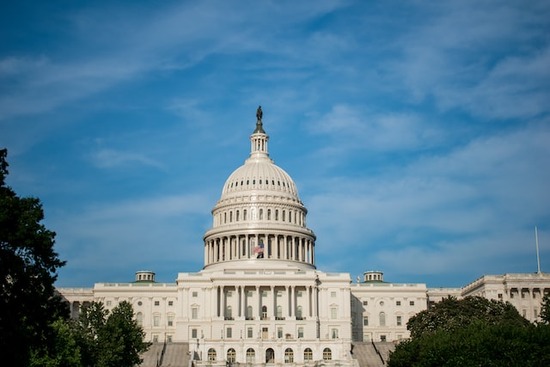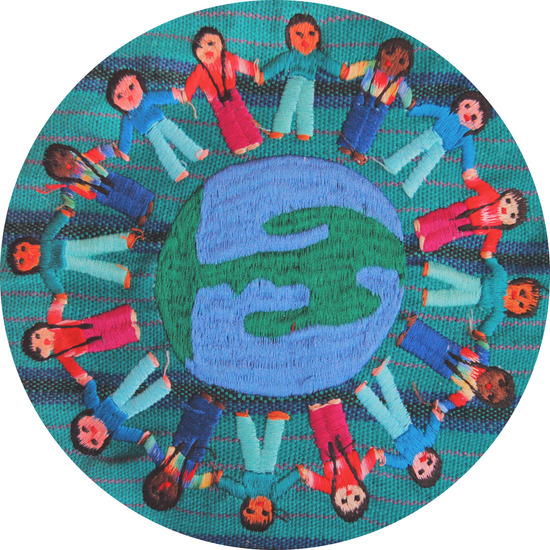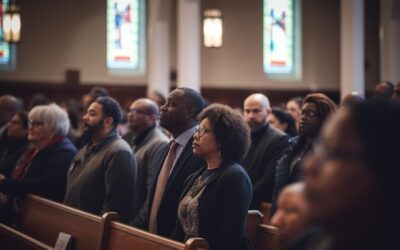Adventists see religious liberty as an essential human right. After all, God endowed humanity with freedom of choice from the very beginning. So we believe it’s best for governments to also support their citizens’ rights to worship based on their convictions.
This isn’t an ideal we simply agree with—we actively support it. The Seventh-day Adventist world church headquarters has an entire department focused on promoting and defending religious liberty.
And Adventists certainly aren’t alone in this. Freedom of Religion has been a global concern for centuries, especially for the early Christian church. People faced imprisonment, torture, or even lost their lives to cruel governments or state churches—simply because they refused to surrender their religious beliefs. And that just shouldn’t be.
So it’s no surprise that numerous faith groups uphold religious liberty. But what are the specific ways Adventists have supported religious freedom throughout the years?
Let’s go through:
- What is religious liberty
- Why religious liberty is important to Seventh-day Adventists
- All about the PARL department
- What the Bible says about religious liberty
- How we can uphold religious liberty today
It’s important to note that according to the Bible, this challenge will never go away. In fact, it warns of a time when religious liberty will be further endangered than ever before (Daniel 7:25).
All the more reason to be aware of this hot topic! So let’s get started.
What is religious liberty?

Photo by Andre Hunter on Unsplash
Religious liberty is defined as the “freedom of religious opinion and worship.”1 And to get a good grasp of its full meaning and implications, we can look at some history from places like Ethiopia.
Ethiopia was an Orthodox Christian country officially for many centuries. When Islam entered the country after the religion was founded in the 600s AD, a multi-centuries struggle began, and many Muslims were killed.2
In 1955, one of the first major steps toward religious liberty came with Emperor Haile Selassie’s Ethiopian Constitution (Article 40). However, when the Communist Party overtook Ethiopia in the 1970s, all religious liberty was taken away.3
Only when the Ethiopians overtook the Communist government and set up another, the Ethiopian People’s Revolutionary Democratic Front (EPRDF), in 1995.
With the new constitution, Ethiopia allowed every every religion, denomination, and non-religious people equal treatment.4
While today religious liberty once again has a precarious footing in Ethiopia, religion and freedom to express it has always been a desire and goal for the people of the country.5
Religious liberty has factored into many other governments as well, including the United States and England.
It’s no question how foundational something like religious liberty is when it comes to establishing a civil society that values individual freedoms. And Adventists want to do everything we can to defend this concept.
Why is religious liberty important to Adventists?

Photo from Freeimages
Adventists believe religious liberty is crucial for numerous reasons. But first and foremost, it’s rooted in the fact that God created humanity with freedom of choice. With love and sincerity being the priorities, He never wanted anyone to be forced into worship.
It is indeed true that in the Garden of Eden, exercising free will resulted in catastrophic consequences (Genesis 3:16-24). That’s how our world became closely acquainted with sin, death, and suffering.
There are those out there who fear religious liberty for similar reasons. They’re afraid that by allowing citizens to choose who and how they worship, which would be the basis for their value system, it might make society harder to control or unify.
Amid that fear, it’s often forgotten that if people are forced to follow someone, it’s highly likely they’re not truly following them at all.
God wants a genuine relationship with all of us. For that to happen, He wants us to choose Him. Even if there’s a risk we won’t.
But for religious and government officials that strive for power and control, this concept is a struggle.
The Roman government persecuted the early Christians for their beliefs.6
They ordered them to worship their gods instead of allowing them to worship differently. If they were caught worshipping God they were captured, tortured, or killed.
Later on, the Romans adopted Christianity, but their intolerance toward those of opposing religions did not change. They slaughtered Protestant Christians for their beliefs during the Spanish Inquisition.
There are countless examples of religious persecution throughout history. From conquistadors targeting Native Americans to the Church of England threatening the Puritans.
Most of these violent and oppressive acts were supposedly done in God’s name. What a sickening way to take His name in vain.
That’s why Adventists wholeheartedly emphasize the importance of religious liberty. Worship of the God we love shouldn’t be built on fear, but on faith and love (1 John 4:18).
We see this kind of freedom as everyone’s right.7 If we want to be able to worship God freely, as we’re so convicted, it’s only fair that we want the same opportunity for others.
But what happens when someone is not permitted to worship freely?
An Adventist organization called PARL steps in to ensure they receive fair treatment.
What is PARL?
PARL stands for Public Affairs and Religious Liberty.8 It was created by the Adventist Church to support and defend religious liberty worldwide, and it’s thought to be one of the largest Christian efforts to preserve religious freedom.9
So how does PARL accomplish this?
They help by:10
- Participating in international efforts to advocate for the freedom of religion (ex: Geneva Convention)
- Holding special events to discuss the importance of religious liberty with government officials
- Spreading awareness, such as the production and distribution of Liberty Magazine
- Connecting church members with legal counsel or advice if their religious freedom is not being respected by their employer, educational institution, care provider, etc.
And on several occasions, PARL intervened in the United State Congress’ attempts to pass religious laws.

Photo by Elijah Mears on Unsplash
For example, in the 1880s and 1920s, the United State Congress tried to pass laws that would forbid most types of business to take place on Sundays.11 This was because most Christians considered Sunday a holy day, and a time to encourage church attendance.
Naturally, because Adventists celebrate the original seventh-day Sabbath as God’s holy day of rest, this could make business more difficult for them, and it could single them out as a group of people worshiping on a different day than the one the government recognized.
But more than anything, if a government appeared to favor one religion or worship practice over another, that would be a violation of constitution in some countries, such as Ethiopia in the earlier example. And it would make religious liberty in general more difficult to promote.
Fortunately, PARL was able to produce enough signatures to help that legislation get rejected.12
Additionally, PARL has frequently helped Adventists defend their right to honor the Sabbath by abstaining from work and making it a day of worship. They protect employees if their employers insist they work on Sabbath. They also provide opportunities for students to take exams on another day if tests are scheduled for Saturday.
All in all, PARL has been instrumental in maintaining religious freedom for Adventists, and for Christians in general, throughout the world.
Does the Bible support religious liberty?
Even when bringing up the idea of humanity’s freedom of choice, there are some who wonder if religious liberty is indeed a biblically-supported concept. After all, wasn’t the nation of Israel a theocracy? In other words, didn’t the Hebrews’ government require its citizens to worship God?
The answer is a bit complicated. It’s true that Israel was technically a church-state instituted by God. They were commanded to abstain from the pagan worship practices of the nations around them (Exodus 20:2-3)—some of which were outright harmful, perverse, or dangerous.13
Additionally, the Israelites were a nation already identified as believers (Joshua 24:16-21). And rather than enforcing worship to God on the rest of the world, they were to be a light to the nations around them (Isaiah 49:6).

Photo from Freeimages
Their main goal was to witness to others about God.
And the world is vastly different today. The world has grown much bigger than a collection of militaristic nations centered around one religion. Due to globalization, more countries are full of people who practice a variety of religions.
And now, instead of spreading the gospel through one nation, God has believers all over the world that lovingly seek to finish this work.
Ancient Israel was ultimately unsuccessful in witnessing to the nations around them. Because of this, Jesus opened the way for everyone, not just what we’d come to call the “children of Israel,” to help spread the gospel (Acts 18:4-6).
As we can find by reading the New Testament, God no longer has a special nation of followers. Instead, people from all over the world choose to serve Him.
It’s not the church’s job to police people, or to punish or condemn them in the name of God. Romans 14:5 encourages every individual to be “fully convinced in his own mind” (CSB). And 1 Corinthians 10:29 cautions against a person’s freedom being “judged by another person’s conscience” (CSB).
Instead, the commission to all believers is to share the gospel, make disciples, and open the door for the Holy Spirit to personally convict each person (Matthew 28:18-20). And it works out much better this way because God knows men’s hearts in a way we never can (1 Kings 8:39). He has no bias against them, He is only seeking their best interest, and He will never violate their freedom to choose their allegiance.
Jesus will never push anyone to accept Him. The Bible says that Jesus merely knocks, leaving it our choice to answer (Revelation 3:20).
How can we help support religious liberty today?
Much of the Bible addresses the issue of religious freedom. So what are the best ways we can apply these biblical principles to the concerns of today?
For one thing, we can see how God has cared for those whom He convicts to stand up for Him in the face of hostile unbelievers or oppressive governments. We can remember people like Daniel, Moses, Paul, and more.
And we can see an example of how to approach people who believe differently in the story of Jesus and the Samaritan woman. Even though she had different beliefs (John 4:20), Jesus approached her kindly. He did not focus on where He knew she was mistaken about things, and instead emphasized the promise of the gospel (John 4:1-26).
And as for specific ways to get involved in religious liberty efforts, many options are available:
- Stay aware of current events, so you can:
- Vote whenever given the chance
- Write letters to government officials
- Sign and share relevant petitions
- Support or volunteer for organizations that help defend religious liberty around the world
- Pray for our government’s leaders
- Become a Church Ambassador
- Report a religious liberty concern to PARL
- Subscribe to Liberty Magazine
But the most important way we can promote the love of God through religious liberty is to model this respect in our daily lives. We can take a genuine interest in every person we meet, listening to their stories and getting to know them. We can model mutual respect and show that God’s love doesn’t discriminate—He cares for everyone, whether they currently acknowledge Him as their Savior or not. So we should, too.
Jesus died for every human being in the name of freedom—namely, to free us from our sins. And He gives us the power to use our free will to make better choices, and to understand what we’re choosing against.
Although He paid a heavy price just for us to have the option of believing in Him, He is against forcing it on anyone. That would defeat the purpose of creating humanity with the ability to choose, so that we could learn to genuinely love.
So instead He waits patiently, gently asking us if we would like to accept His free gift of salvation.
Want to learn more about how the Bible talks about religious liberty, and its role in our world’s future?
- https://www.thefreedictionary.com/Religious+liberty. [↵]
- DeCort, Andrew, “Christian Nationalism Is Tearing Ethiopia Apart,” Foreign Policy Magazine, June 18, 2022, https://foreignpolicy.com/2022/06/18/ethiopia-pentecostal-evangelical-abiy-ahmed-christian-nationalism/. [↵]
- Ibid. [↵]
- Ibid. [↵]
- Ibid. [↵]
- https://www.britannica.com/topic/Christianity/Relations-between-Christianity-and-the-Roman-government-and-the-Hellenistic-culture. [↵]
- https://adventist.news/news/promoting-religious-liberty-around-the-world. [↵]
- https://www.adventistliberty.org/what-is-parl. [↵]
- https://www.adventistliberty.org/history. [↵]
- https://www.adventistliberty.org/what-is-parl. [↵]
- https://www.adventistliberty.org/history. [↵]
- https://www.adventistliberty.org/history. [↵]
- Leviticus 18 & 20; Deuteronomy 12:30, 31; 2 Kings 21:6; 23:10. [↵]
Related Articles
More Answers
What Is ASI (Adventist-Laymen’s Services and Industries)?
ASI, which stands for Adventist-laymen’s Services and Industries, is a membership-based organization that provides support for Seventh-day Adventist laypeople (Adventist professionals who aren’t pastors).
Sola Scriptura—What Does It Mean, and Why Is It So Important?
Sola scriptura is a term that originated during the Protestant Reformation. It represents the way many Christians view the Bible and its authority.
What is the Concept of “Present Truth” and Why is it Important?
Present truth is the principle that certain biblical truths are relevant to God’s people at specific times in history. God sends the Holy Spirit to reveal truths that help us better understand how to interpret and apply His Word in a present moment.
What Does the Bible Say About Modesty
The Bible teaches that modesty, a form of humility and respect, is a valuable quality in everyone—men, women and children. It has to do with how we present ourselves, which should exemplify our inner relationship with God.
13th Sabbath Offering: What It Is and Why It Matters
On the last Sabbath of every quarter, Adventist churches participate in the 13th Sabbath offering—a special offering that goes to mission fields around the world.
Adventist Movies: Where Faith and Film Meet
The Seventh-day Adventist Church’s mission from the beginning has been to share God’s truth in the Bible. And as times have changed, we’ve explored new ways of doing this—one of those being movies.
Everything You Need to Know About an Adventist Church Potluck
Every so often, usually on a schedule ranging from once a week to once a month to once a quarter, an Adventist church will have “fellowship dinners,” often casually referred to as potlucks.
How to Join the Seventh-day Adventist Church
Whether you heard about the Seventh-day Adventist Church through a traveling evangelist, during your online searches, or through a loved one or relative, you might be considering joining yourself.
How Do Adventists Make Movie and Music Choices?
We have entertainment at our fingertips. With just a tap on our smartphones, we can access all the latest movies, music, YouTube videos, and more.
Do Adventists Celebrate Birthdays?
Yes, most Seventh-day Adventists do celebrate birthdays because we see them as excellent reminders of the life God has blessed us with. And we celebrate them the same way everyone else does—with friends, family, presents, and a special meal.
Are Seventh-day Adventists Christians?
Yes, the Seventh-day Adventist Church is a Protestant Christian denomination formed in 1863. Just like other Christians, we believe that Jesus Christ is our Savior and seek to follow the principles of the Word of God.
Do Seventh-day Adventists Believe in the Secret Rapture
The secret rapture belief asserts that the followers of Jesus will be suddenly and stealthily “raptured” from earth and taken to heaven. Then, any people left on earth will face a period of great difficulty—before Christ’s second coming actually happens.
The Seventh-day Adventist Hymnal
The Seventh-day Adventist Hymnal is a songbook used worldwide by many Adventist congregations during their worship services. Since its publication in 1985, it has helped foster praise to God while reminding church members of our mission and drawing them closer to Jesus.
Do Adventists Have Their Own Bible?
Adventists have some unique beliefs—you might be able to name some of them right now. The seventh-day Sabbath. Death as a sleep. Hell as nonexistence.
Do Adventists Celebrate Communion and Foot Washing?
Like many Christian denominations, Adventists regularly participate in communion, also referred to as the “Lord’s Supper” or the “Last Supper.” They also practice foot washing (John 13:1-20), or the “ordinance of humility,” during the service—which isn’t as common.
How do Adventists choose what to eat?
Every day, parents go through the ritual of getting their kids to eat what is healthy and good while trying to steer them away from what can hinder the growth of their developing bodies. Nutritionists work with their clients to make better food choices.
What Are Seventh-Day Adventist Sermons Like?
In nearly every Seventh-day Adventist Church, the sermon is the focal point of the main service—similar to many Protestant Christian denominations. It is a time of biblical instruction by the pastor, who shares what they’ve been studying in the Bible and preparing over the previous week.
Didn’t find your answer? Ask us!
We understand your concern of having questions but not knowing who to ask—we’ve felt it ourselves. When you’re ready to learn more about Adventists, send us a question! We know a thing or two about Adventists.



















